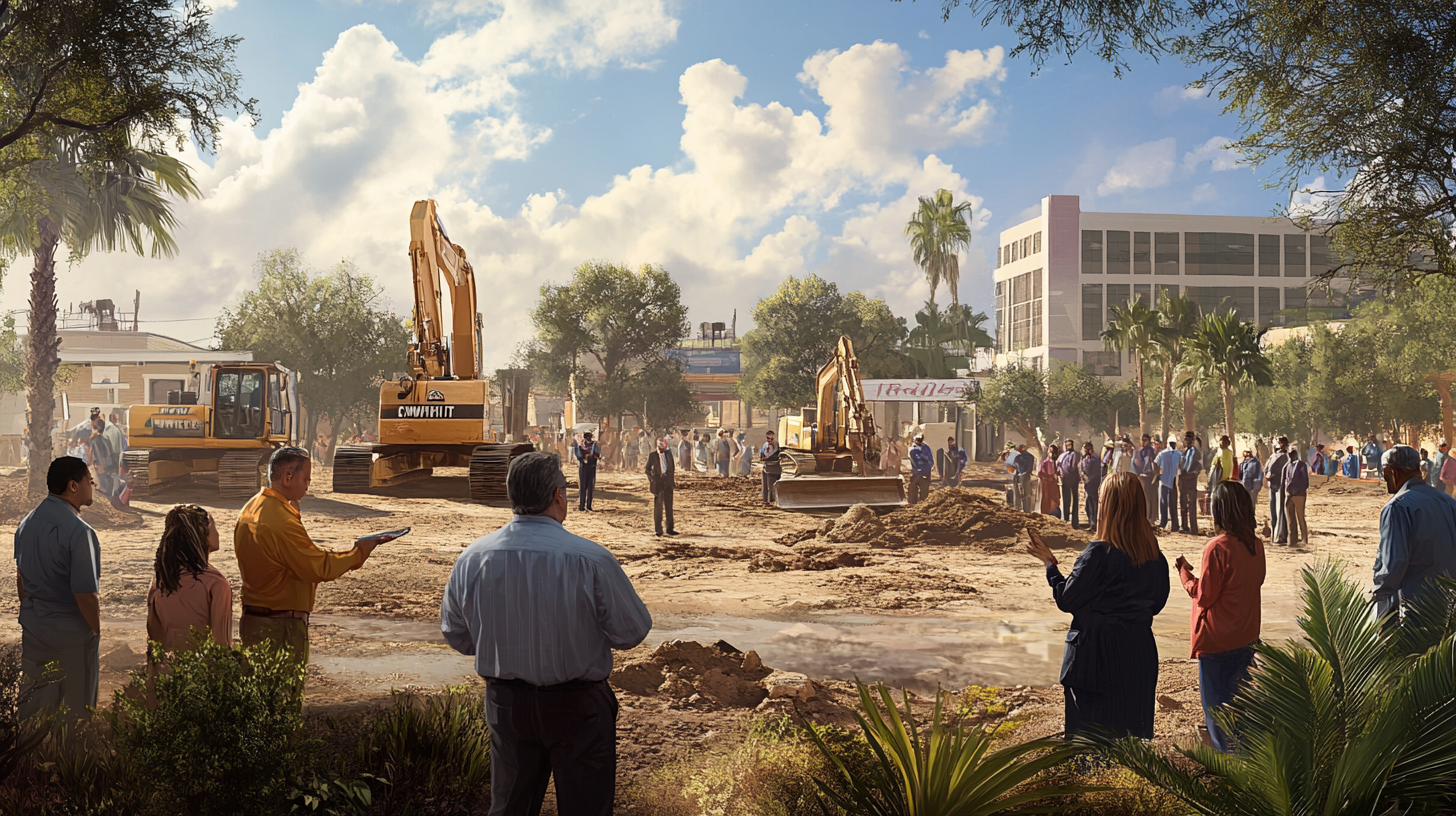Milwhite Inc. to Cease Operations in Brownsville Following Community Outcry
In a landmark decision poised to impact residents throughout the Rio Grande Valley, Brownsville officials and Milwhite Inc. have agreed for the company to cease operations by November 27, 2024. This comes after several months of litigation concerning dust emissions from the plant located on South Padre Island Highway, which residents claimed were causing health and property concerns.
The Legal Battle: Community Health Concerns Come to the Forefront
The City of Brownsville initiated legal proceedings against Milwhite Inc. in February, responding to public grievances about the pervasive dust that blanketed homes and everyday environments. Inhabitants of the affected areas reported respiratory ailments, and damage to property proved to be a recurring complaint—a seemingly insurmountable hurdle for those seeking to enjoy their homes openly.
Adhlemy Sanchez, a local resident, captured the community’s frustration back in February, explaining, “Our property is being affected. We have damages to our roofs, and that’s not cheap to replace. Our cars are being affected—our property, our plants, our ecosystem. Everything’s being affected.”
The Texas Commission on Environmental Quality echoed these local concerns when their investigation into Milwhite Inc. revealed 16 violations of the Texas Clean Air Act. These findings underscored the gravity of the situation, enhancing public discourse around industrial accountability and environmental health.
A Resolution Without Financial Exchange
Remarkably, the agreement reached ensures that no financial compensation or transactions occur between the city and Milwhite Inc., a move suggested to minimize the expenses and uncertainties of prolonged litigation. This resolution allowed for open dialogue, illustrating a pathway to resolving disputes through discussion and mutual understanding.
Mayor John Cowen, Jr. commended the process, sharing, “The ceasing of operations at Milwhite, Inc. marks a significant step towards the assurance that standards that keep Brownsville a safe and healthy place for all residents are upheld. I am pleased that Milwhite kept open lines of communication with the City from the start – helping us ensure a positive outcome for the community.”
South Texas and the Local Impact
For Valley residents, the cessation of operations at Milwhite Inc. symbolizes both a triumph over industrial oversight and a spotlight on the importance of community engagement in local governance. The City of Brownsville’s proactive approach offers a blueprint for addressing long-standing regional challenges directly affecting community wellness and sustainability.
Cristina Robles, a Southmost College professor specializing in environmental policy, remarked on potential broader implications, indicating, “This agreement shows a shift in local governance prioritizing public health and environmental standards. It’s an example of how communities, especially in South Texas, must balance economic operations with the fundamental rights of residents to a safe and clean environment.”
Previous Struggles and Future Considerations
Brownsville’s journey toward this resolution did not occur in isolation. It reflects ongoing dialogue about industrial impact across the Rio Grande Valley, where population growth and urban development often intersect uneasily with industrial operations.
Historically, Valley communities have faced challenges stemming from infrastructure-heavy projects, which, while economically beneficial, have also strained natural resources and environmental stability. This case serves as a reminder of the necessity for regulatory vigilance and community feedback in shaping future policies.
Looking forward, South Texas’s example could prompt other regions to reassess their approaches to industrial regulation and community health. The emphasis on non-financial resolutions and open communication also presents a model for alternatives to conventional legal battles, which often stall and create division rather than solution.
Resources and Ongoing Monitoring
City officials have reassured residents that post-closure monitoring will be carried out to ensure that air quality and property safety remain at peak levels following the plant’s shutdown. Community members are invited to engage in regular forums that the city will host to address ongoing environmental issues.
For residents seeking more information or needing support related to this transition, the Brownsville City Hall will provide resources and guidance, readily available through various communication avenues, including social media updates and newsletters. Community feedback is especially welcomed as part of a broader initiative to continuously improve city governance.
As the RGV community processes this significant industrial and environmental development, the focus remains on fostering a resilient local ecosystem where economic and environmental policies align to support vibrant, healthy communities fully invested in the spirit and progress of the Valley.







